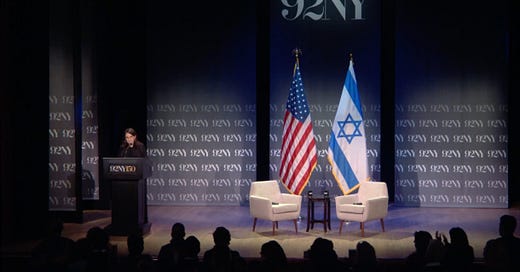Bari Weiss: What It Means to Choose Freedom

I was honored to deliver the State of World Jewry lecture at the 92Y. This is what I said.
684
This past Sunday, I gave a speech at the 92nd Street Y called “The State of World Jewry.” The address is a historic one. Over four decades, it has been delivered by the likes of Elie Wiesel, Abba Eban, Amos Oz, and more.
But for a sense of the state of Jewish life in America these days, you need only to have walked by the building that night. You would’…
Enjoying the story?
Enter your email to read this article and receive our daily newsletter.
Error
Already have an account?
Sign In




